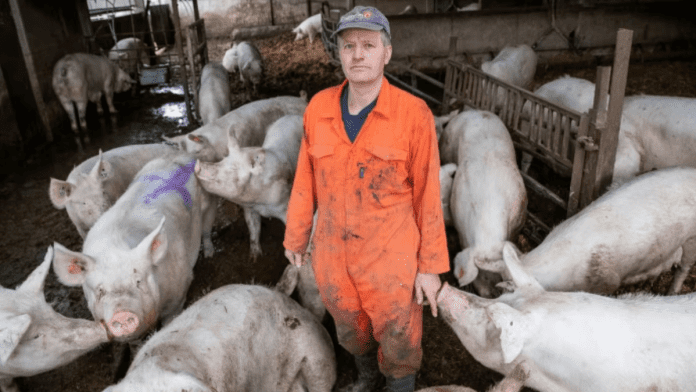News in Brief:
– Intensive pig farming in Catalonia’s Osona region strains water resources, with over a million pigs consuming water at a rate exceeding that of nearly 200,000 residents.
– Pollution from excessive animal waste disposal further threatens water quality, prompting regulatory measures to curb environmental degradation and safeguard essential resources.
In Catalonia’s Osona region, where pig farms outnumber people seven to one, a pressing dilemma unfolds. The surge in intensive pig farming, driven by Catalonia’s thriving pork industry, is exacting a heavy toll on the region’s water resources, exacerbating the impacts of a relentless drought, a news report says.
Spain already grapples with dwindling water reserves, exacerbated by the worst drought in recent history, the demand for water from the burgeoning pig sector surpasses that of the local populace. With over a million pigs guzzling water at a rate akin to nearly 200,000 residents, concerns mount over the strain on already scarce resources.
Beyond water consumption, the pig industry’s unchecked expansion poses another threat: pollution. Alarmingly, over 40% of the region’s water sources are contaminated with nitrates, reaching levels ten times higher than deemed safe by the World Health Organization. This pollution, stemming from excessive animal waste disposal, not only imperils aquatic ecosystems but also endangers public health.
Regulatory response to the crisis
In response to the crisis, the Catalan government has implemented emergency measures, including stringent water usage restrictions and mandated reductions in livestock numbers. Livestock farms are now required to slash water usage by 50%, a move aimed at curbing environmental degradation while safeguarding water reserves for essential needs.
The burgeoning pork industry, a cornerstone of Catalonia’s economy, faces scrutiny amid mounting environmental concerns. While lucrative exports to global markets fuel economic growth, the toll on local resources and ecosystems underscores the need for sustainable practices.
Critics contend that the industrialisation of pig farming, marked by corporate consolidation and profit-driven practices, undermines the region’s ecological integrity. As regulatory oversight grapples with enforcing compliance, the delicate balance between economic prosperity and environmental stewardship hangs in the balance.



